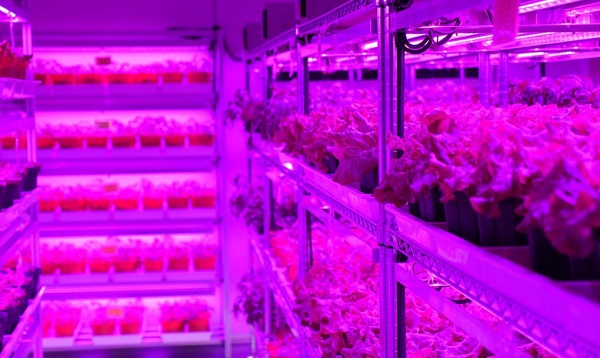Login |
Register |
Management | Member Center | Contact Us





 CN
TW
EN
CN
TW
EN
Login |
Register |
Management | Member Center | Contact Us





 CN
TW
EN
CN
TW
EN
|
|
|
Multinational electronics company Panasonic will start growing and marketing high-value vegetables in China from March 2018 with its vertical farm in Suzhou. Those vegetables will be made into salads and sold to up to 30 shops in Suzhou and Shanghai.
 |
| (Image: Panasonic) |
In China, food safety has become more and more important. Panasonic claims monitoring and management at each stage will be thoroughly executed in hope to increase the sales in the Chinese market.
Panasonic in 2016 started running a vertical farm in its electronic component manufacturing subsidiary in Suzhou. The vertical farm, taking a 1,000 square meter area, is now officially in full operation.
The company aims to raise the plant production by 3 times to a monthly production of 9 tons.
Prices of the vegetables will be 2-2.5 times higher, compared with prices local plant growers set for their production. Those vegetables grown in the vertical farm were sold to merely two channels in Suzhou—the AEON MALL and the Izumiya Supermarket. In the future, Panasonic plans to approach local shops as well, broadening the channel to market its plant production to the Chinese community.
Panasonic uses special LED lighting to provide and adjust the light in the vertical farm to ensure the temperature, humidity, and the density of carbon dioxide are maintained at a certain level. That turns the farm an environment suitable to grow β-carotene-rich plants anytime of the year.
The company says the salads it offers are nutrient-rich and safe to eat, and looks for collaborations with local restaurants. It will also be working with local e-commerce companies to develop strategies to market both high-value vegetables and the equipment in the vertical farm.
People in China have become more aware of food safety after being affected by overuse of pesticides. The awareness towards vertical farms thus increased. Plant factories have been built in several regions in China since 2010.
At the early stage, these facilities were simply regarded as the demonstration of advanced plant production technology by governments and big corporations. Later on, more companies established their vertical farms once the government released more subsidies.
Establishments across the nation eventually scaled up, with the largest facility (approximately 9,000 square meters) that is able to produce 45 tons of vegetables on a monthly basis.